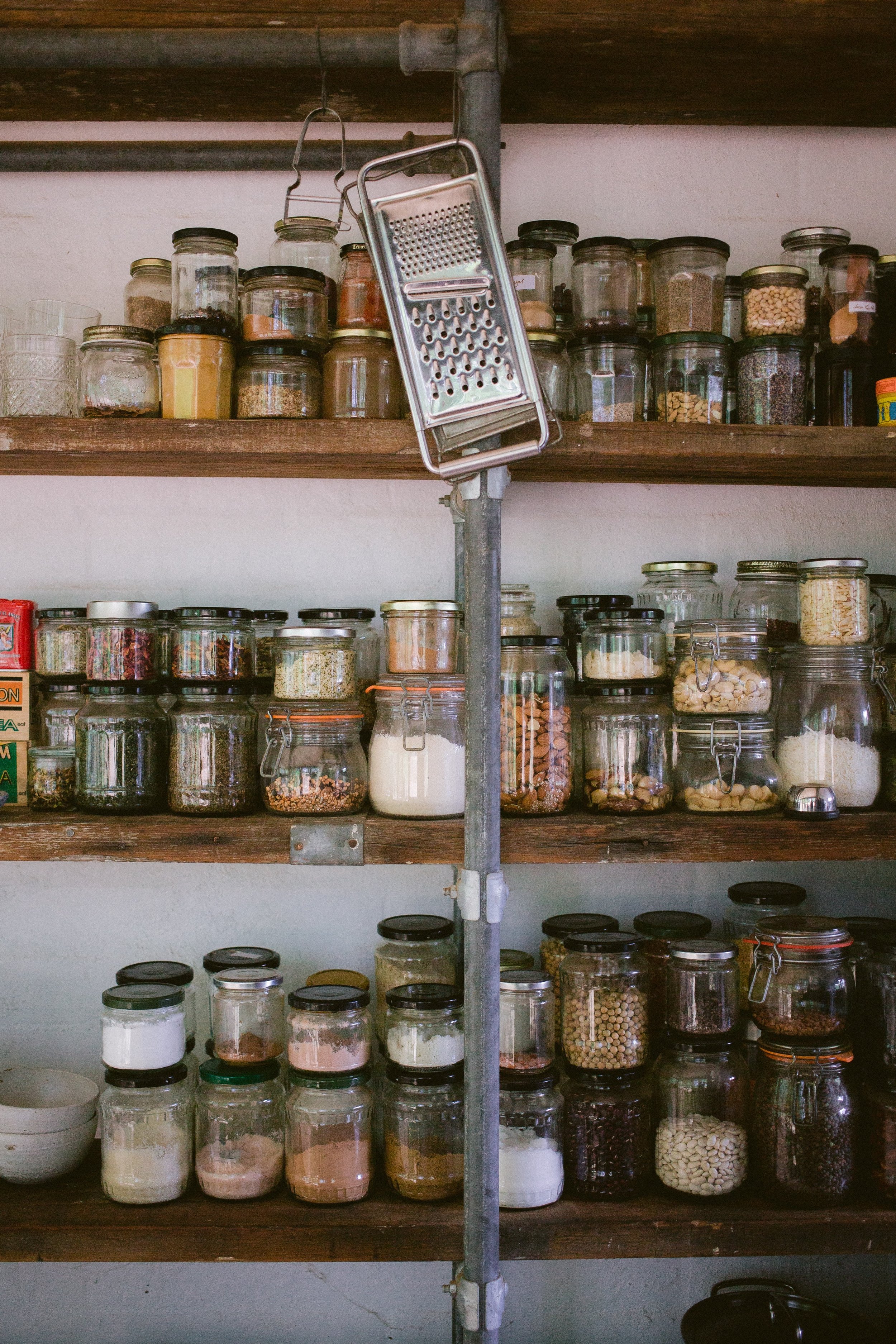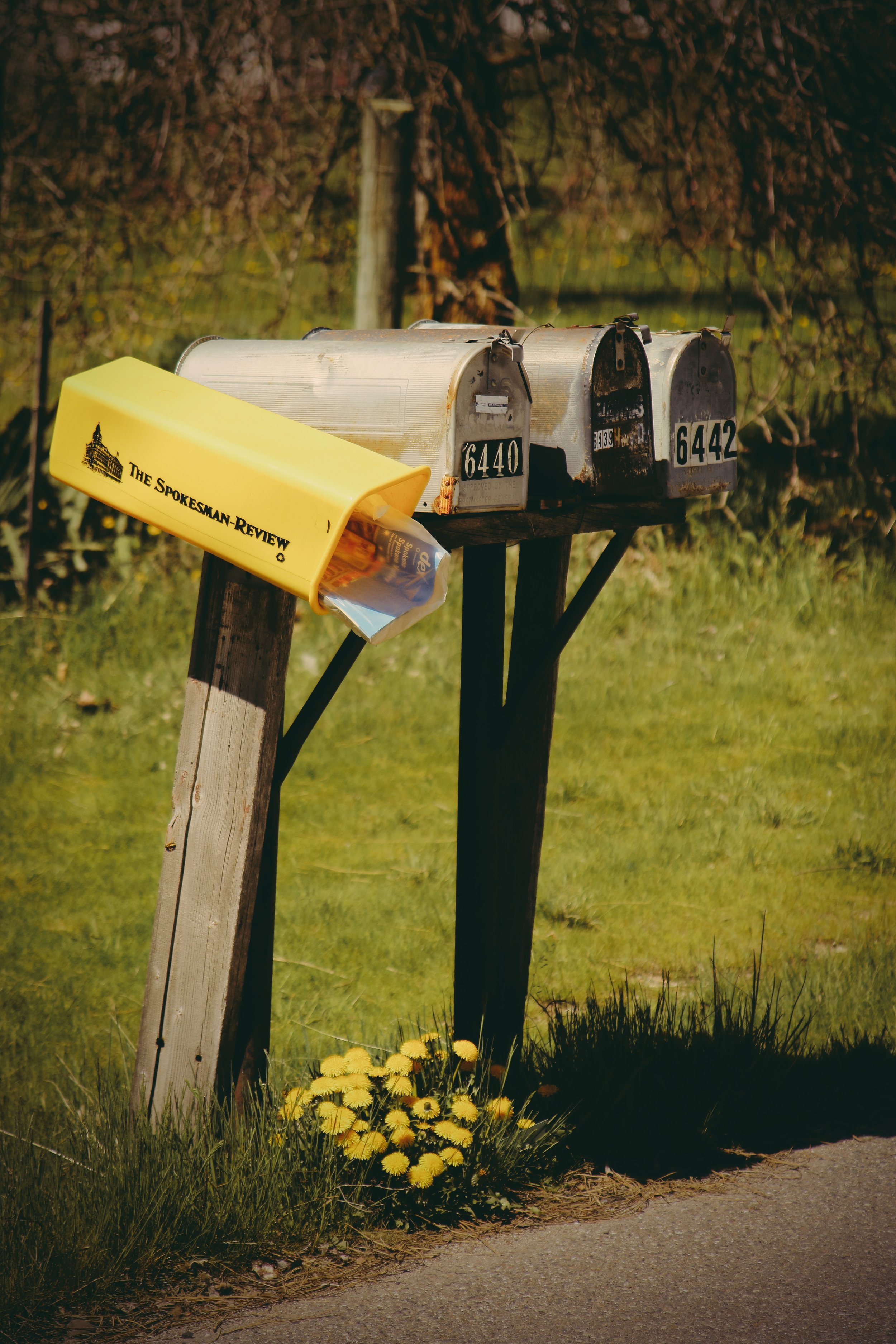11 FREE Sustainable Swaps
Swap clothes with friends
If you and your friends have similar styles and sizes, a clothing swap is a great alternative to shopping new. You still leave with new-to-you items that may feel refreshing, and you also find a home for your old clothes instead of tossing them into a dumpster and damning them to landfills.
2. Wash and reuse glass jars
Jars are so functional; you can use them to store pantry goods, leftovers, cotton rounds, hair ties, screws… the list goes on. While jars are less than a dollar at most thrift stores, you probably already have a few in your fridge. Instead of recycling jars from pasta sauce, jelly, or pickles you can rinse them out—or soak them longer to rid of smells—and reuse them again and again.
3. Opt for paperless billing
Whether you prefer to set up auto-pay or use a monthly reminder, you likely have bills to pay. Instead of receiving these bills in the mail every few weeks, sign up for paperless billing to reduce the recycling used. Some companies will still send you offers—I’m talking about you, Spectrum—and it doesn’t hurt to reach out and ask that they stop wasting paper.
4. Propagate your plants
Many plant varieties can be propagated via water or soil to create “baby” plants. My favorite plants to propagate are pothos, spider plants, and ZZ plants. Some cuttings will root quickly, making them an easy gift.
5. Return plastic bags to grocery-store collections
Not all grocery stores will have collection centers for plastic grocery bags and some other thin plastics, but some do! Various Columbus Giant Eagle and Kroger locations accept clean & dry plastic bags for recycling efforts. I recommend keeping them in a grocery bag so you have them ready to drop off next time you shop.
6. Use the library
The library is one of the best free resources we have left. You can borrow books (duh), including craft or cookbooks. Plus, the library often has study rooms that are free to rent, free wifi, and printing services.
7. Walk, bike, and carpool
Though it’s not always ideal, walking and biking are more sustainable ways to get around. Not all cities have reliable public transport, but when you have the right weather, feel safe, and have the time consider taking a slower—and often more direct—route. I bike as much as I can in the warmer months and carpool during the winter.
8. Reuse your coffee grounds (and leftover coffee)
Leftover coffee can be combined with milk and ice for an afternoon latte, but if that’s not something you’re into consider giving it to your plants. Unflavored, room temperature coffee helps balance nitrogen in potted plants and has saved many of mine from yellow leaves. You can also reuse the grounds as plant fertilizer (in small amounts) or make a coffee scrub with coconut oil.
9. Air-dry your clothing and linens
Save electricity and time by air-drying your clothing. In the warmer months I like putting my clothes out in the sun to dry faster; they end up smelling like fresh air and I don’t have to worry about shrinking! Check your fabrics before doing this to avoid bleaching, and note that you may need to clip items to keep them from blowing away in the wind!
10. Compost
Composting is a great way to prevent items that will break down naturally from sitting in landfills. If you can start a backyard compost: do it! It doesn’t need to be fancy. Start by looking at what trash you have that can be composted instead and work from there. Read my full guide on compost or check out my 8-bin experiment.
11. Make your own veggie broth
Save the scraps from veggies like you would for composting, but instead save them in a container in the freezer. Once you have about a quart of scraps, simmer them in a large pot of water for an hour to make your own broth. It won’t keep as long as store-bought broth, but you can make it taste how you like: maybe spicier using peppers or more fragrant using veggies like celery and carrots.











